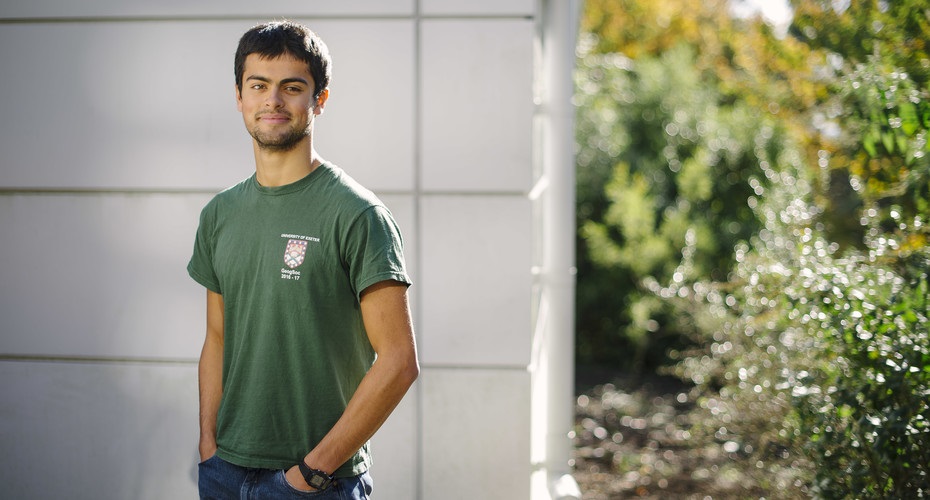| Degrees |
|
|---|---|
| Duration |
| Start date | September, January or April |
|---|---|
| Location | Streatham Campus |
| Study modes | Full time and part time |
Overview
You will have the opportunity to study a topic which incorporates a number of established subject areas, including art history and cultural studies.
Supported by colleagues from across the Humanities disciplines with research interests in Visual Culture, we offer PhD supervision on a range of topics:
- from the old masters to contemporary practitioners
- from the traditional arts to new media and technologies
- and from elite production to popular culture.
You will also be able to conduct cross-disciplinary research in collaboration with other relevant fields of study.
This programme will particularly appeal to you if you have a background or interest in
- the history of art
- cinema
- cultural history
- philosophy
- sociology
- visual culture.
Beyond the University we have good relations with UK museums and galleries, as well as academic and research institutions internationally, attracting research students from all over the world and many cultural backgrounds.
Contact
Web: Enquire online
Phone: 0300 555 6060 (UK)
+44 (0)1392 723044 (non-UK)
Top 15 for History of Art, Architecture and Design
The Complete University Guide 2023
Internationally recognised fine art, heritage and film collections on site, including the Bill Douglas Cinema Museum
World-leading research and teaching team
Research overview
Our research in Art History & Visual Culture is interdisciplinary in scope. Art History & Visual Culture staff publish on the history of art, design and cultural studies. They curate exhibitions, work with a variety of arts and culture institutions, and lead major externally-funded research projects on topics as diverse as curatorial engagements with performance archives; the history of French art and its institutions; Renaissance architecture and public spaces; exhibitions and colonialism; visual cultures of health and illness; or the history of erotica and pornography.
Explore our research centres and research projects to find out more about our current research topics.
Visit our staff profiles for details on the research interests and publications of individual staff.
Current and recent projects our academic staff have been working on are:
- A New History of Spanish Cinema
- Middlebrow Cinema
- Rock/Body: Performative Interfaces between the Geologic and the Body
For more information about research projects, visit our Projects page.
How to apply
Entry requirements
Students applying to enter directly into the MPhil/PhD programme would normally be expected to have a Masters degree with Merit or equivalent in a related subject, or other relevant qualifications such as a doctorate in another subject.
If you are an international student, please visit our international equivalency pages to enable you to see if your existing academic qualifications meet our entry requirements.
Applying for MPhil/PhD study
You may wish to read our general advice for PhD applicants, which give tips on how to put together a successful research degree application.
Applicants for research programmes are also advised to visit the College's webpages to check for specific advice. Here you will be able to find out about staff research interests and make preliminary enquiries about supervision. We advise that you do this before applying.
Requirements for international students
If you are an international student, please visit our international equivalency pages to enable you to see if your existing academic qualifications meet our entry requirements.
English language requirements
International students need to show they have the required level of English language to study this course. The required test scores for this course fall under Profile E: view the required test scores and equivalencies from your country.
Fees and funding
Tuition fees per year 2024/25
- Home: £4,786 full-time; £pro-rata part-time
- International: £22,600 full-time
For those studying for more than one year, our fees are expected to increase modestly in line with Consumer Price Inflation measured in December each year. More information can be found on our Student Finance webpages.
Tuition fees per year 2023/24
- Home: £4,712 full-time; £pro-rata part-time
- International: £20,500 full-time
For those studying for more than one year, our fees are expected to increase modestly in line with Consumer Price Inflation measured in December each year. More information can be found on our Student Finance webpages.
Our Postgraduate Funding webpage provides links to further information. If you are considering a PhD in the future, in addition to University of Exeter funding, we have been successful at securing postgraduate funding for PhD research through our Funded centres.
Current available funding
Supervision
Supervisors - all students have a primary and a secondary supervisor who provide regular, high quality advice, support and direction in their academic endeavours. You will work closely with your supervisors over three to four years (full time PhD) or six to seven (part-time PhD) to develop, investigate and write-up a project at the cutting edge of theological research.
Visit our staff profiles for more information about individual research interests or use the search box on the right of this page to find a supervisor.
Mentor - each student will also be assigned a mentor who will take on a pastoral role and mediate on any problems that arise during the period of study. Your mentor will keep in regular contact and will provide background stability and support.
Careers
We are committed to ensuring you receive high quality research supervision to maximise your potential and prepare you for a rewarding career.
Postgraduate students have access to the wide range of support offered by our Career Zone. In addition, postgraduate research students can access our Postgraduate Researchers' Programme, which covers a range of topics to help you to succeed during your research degree and to act as a springboard for your research career.











